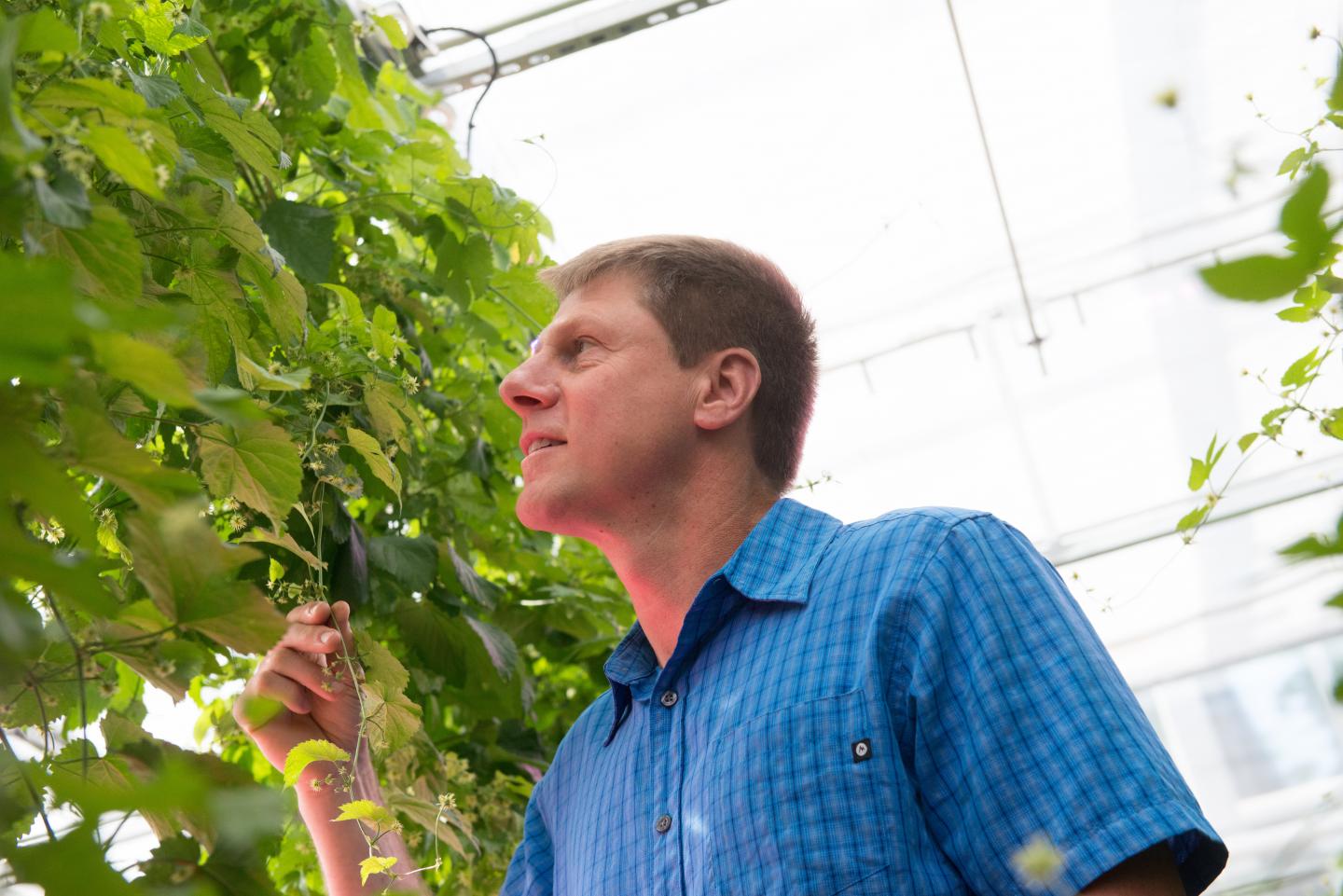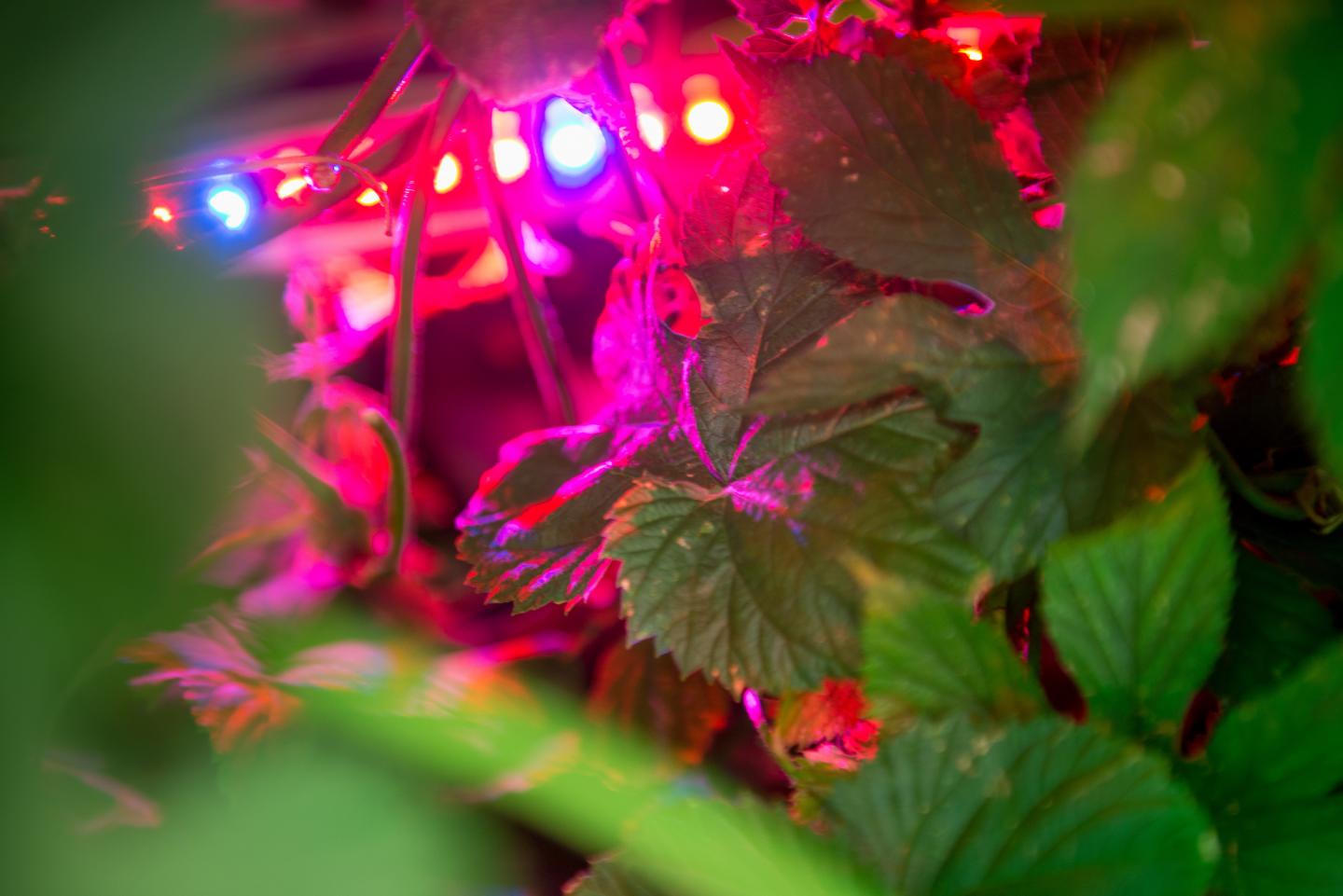By using LED lighting system, a researcher successfully speeds up the production cycle of hops and tricks them to flower without dormancy.
Bill Bauerle, professor in the Department of Horticulture and Landscape Architecture at Colorado State University (CSU), has spent years in the horticultural research center of the university to optimize hops cultivation. With the support of horticulture LED lighting system, Bauerie opens up new possibilities for indoor, sustainable, local production of hops

(Image: Colorado State University)
Hops are almost exclusively grown outdoors and are harvested once per year. It has long been thought that the plants require a low-temperature dormancy period for them to reset under cold winter conditions in order to flower prolifically. Hops also require relatively long periods of daylight. These conditions make hops grow nearly exclusively in the Pacific Northwest area in North America.
Bauerle used the LED lights to speed up production while also bathing his plants in assigned "photoperiods" - the daily duration of light that the plants harvest for energy.

(Image: Colorado State University)
"We fooled our hops into thinking it was the middle of summer in British Columbia, or somewhere else with an appropriate day length," Bauerle said, "so we could grow them all year round."
By precisely controlling the lighting periods of his plants, Bauerle studied the extent to which the dormancy period was indeed a necessary component for healthy hop flowers. His results indicate that hops do not require the dormant vernalization period that was previously assumed essential. In other words, with ideal lighting conditions, hops can grow everywhere, opening up opportunities for local brewers to grow or buy local hops.
The study was published in Scientific Report, titled “Disentangling photoperiod from hop vernalization and dormancy for global production and speed breeding,” in November 2019.
Bauerle has turned his attention to research in other hydroponically grown, industrial crops, including hemp, which is in the same family as hops but has a fibrous, annual root system rather than a rhizome. He is hoping to conduct related experiments on the ideal photoperiods for hemp plants.













